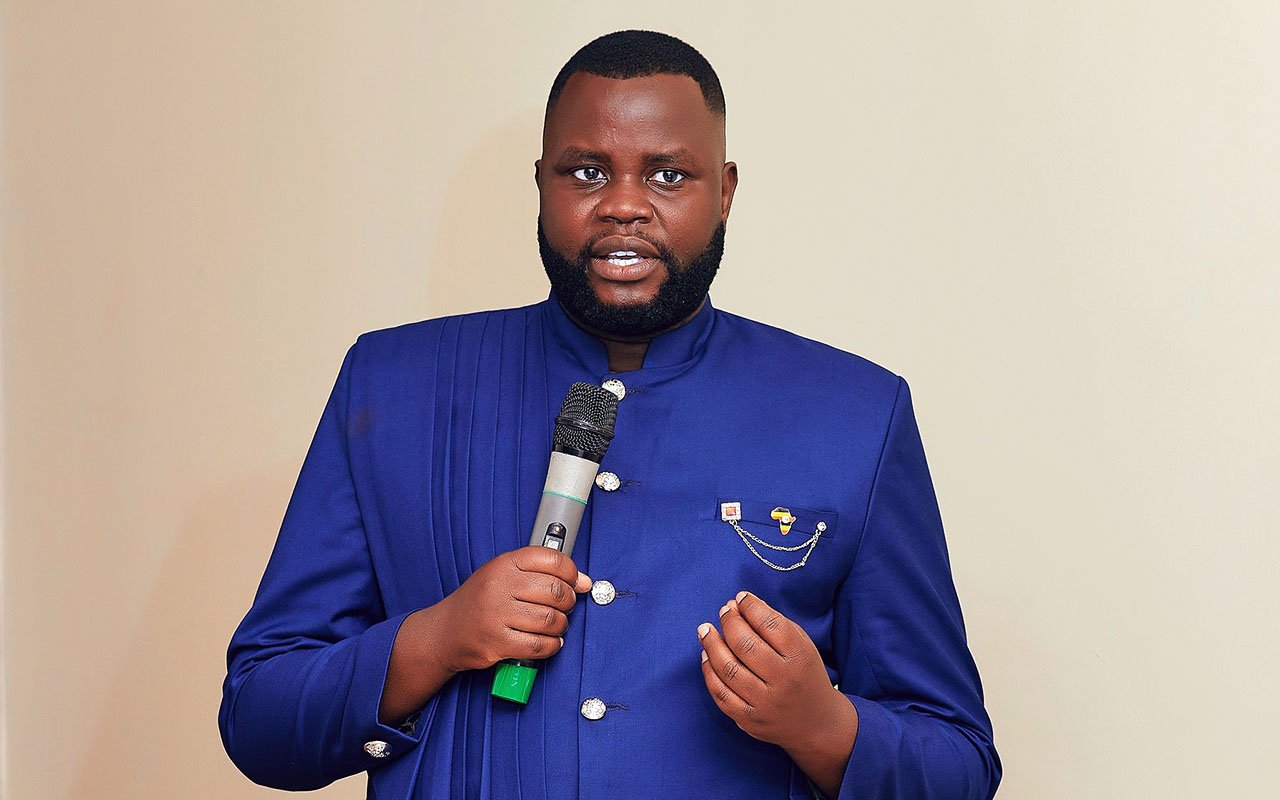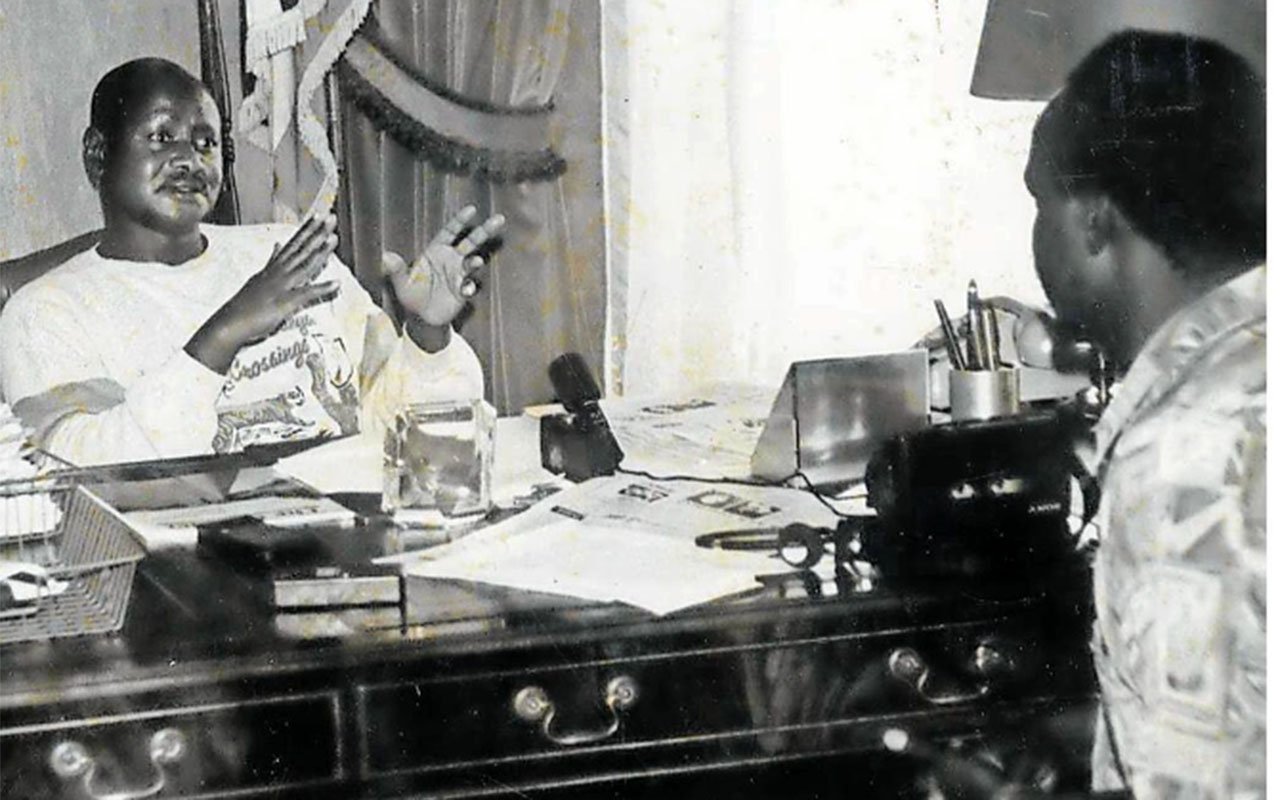
Mr Kimaanya-Kabonera Member of Parliament Abed Bwanika. PHOTO/FILE
After many little-known politicians rode on the National Unity Platform (NUP) wave that raged through the Buganda region to scoop political positions, few dared to openly contradict the party’s principal, Mr Robert Kyagulanyi Ssentamu, alias Bobi Wine.
It has been commonplace to hear his supporters online say Kyagulanyi, a musician-turned-politician, is infallible and can’t be defied, but parliamentary debutant Kimaanya-Kabonera Member of Parliament Abed Bwanika has defied those notions.
From the time he won the elections, Bwanika has proved to be a maverick, always attacking party positions, and those attacks intensified last year when it became apparent that the relationship between the party and the former Leader of Opposition in Parliament, his ally Mathias Mpuuga of Mukungwe-Nyendo, had irreparably broken down.
“Our commander in Masaka is Mpuuga. We can’t allow any other person who is dictated by people from Kampala,” Bwanika said at the end of last year as NUP leadership rolled out Kunga Uganda, a mobilisation drive that they said was supposed to re-energise NUP supporters across the country.
“Buganda, more so Masaka region, is already mobilised. They should take their Kunga to other places of Uganda where NUP didn’t fare well,” Bwanika said.
Bwanika has never been an ardent supporter of NUP principal Kyagulanyi. Before the 2021 elections, he made it clear that his support for presidential candidates was driven by pragmatism, rather than love.
“And I can tell you, I’m not sure whether I like Kyagulanyi. But I’m going to work with him because he has the electricity that we need,” Bwanika said in 2019 as the DP bloc hobnobbed with the People Power movement which later morphed into NUP.
At the time, Kyagulanyi didn’t have a problem with Bwanika’s suggestion.
“As a matter of fact, I don’t like Dr Bwanika. But I’m willing to work with him,” Kyagulanyi said amid laughter at a meeting in Kampala.
Five years later, it has become clear that Bwanika and Kyagulanyi can’t work together.
“NUP can’t remove me from Parliament. The only power they had was to give the party tickets. It’s only the voters of Kimaanya-Kabonera who can eject me out of Parliament,” Bwanika recently declared.
Thwarted ambitions
Bwanika’s ambitions haven’t always been to be an MP, rather, he has always convinced himself that he is the right person to occupy State House.
He first vied for the topmost job in the country in 2006 and he came fourth in the race of five candidates – garnering 65,874 votes.
Standing on the ticket of People’s Development Party (PDP), a party he ran, Bwanika tried his luck again in 2011, coming sixth in the presidential race that had attracted eight candidates – after garnering only 51,78 votes.
He gave the presidential seat another shot in the 2016 General Election, coming fourth after polling 89,005 votes, again under his political party PDP.
Although Bwanika has always seen himself as a person with presidential credentials – always touting his manifesto as the best – in the run up to the 2021 elections, he downgraded his ambitions to being a lawmaker.
From 2017, several sources interviewed for this story say that while Bwanika was busy telling whoever cared to listen how he was going to face off with Mr Erias Lukwago for Kampala Lord Mayor, he was busy mobilising in Bukoto South (Masaka), which was then represented by NRM’s Muyanja Mbabaali.
“He was duping the media and other people who don’t know Masaka politics. He has been mobilising in Bukoto South for years now,” a source in the know of Bwanika’s strategy explained on condition of anonymity.
Bwanika is a native of Kimaanya Parish which was at the time a precinct of Bukoto South.
As preparations for the 2021 elections gathered pace, Bwanika abandoned his PDP and joined what was christened as the ‘DP bloc’, in which the veterinary doctor posed as a lead power broker in the search for unity within the Opposition in an effort to end President Museveni’s three-decade hold on power.
It’s during this time that Bwanika, while calling for unity within Opposition ranks, attacked Opposition leaders Kizza Besigye and Lukwago, accusing them – without evidence – of contributing to Museveni’s longevity in power.
Bwanika claimed that Besigye rejected his support in the lead to the 2016 presidential elections.
“I drove to FDC headquarters and offered my agents to protect Dr Besigye’s vote, who I had concluded would win elections. But I didn’t get any answers from FDC officials,” Bwanika said.
But it should be recalled that during the 2016 presidential campaigns, Bwanika had castigated his fellow Baganda for donating money to Besigye’s campaigns.
This was a continuation of his anti-Besigye campaign that started in 2006 when he swore an affidavit in the Supreme Court saying Museveni had won the elections fairly.
He proceeded to attend Museveni’s swearing-in ceremony and declared that he would work with the President if he asked him to.
The Opposition had generally boycotted the ceremony alleging that the elections had been rigged.
For the 2021 elections, Bwanika accused Besigye of refusing to support Kyagulanyi’s presidential campaigns yet the former army officer had been supported by Opposition figures in his campaigns.
“[Former Kampala mayor Nasser] Sebaggala supported him by directing his supporters to support him. Ssemogerere supported him. He should do the same for Kyagulanyi,” Bwanika said.
Although he had intended to stand in Bukoto South in 2021, Bwanika had to tweak his plans after government moved to operationalise Masaka City.
It took the intervention of the Kabaka for government to rethink its position. One of the results of Masaka being elevated to a city was the creation of a constituency called Kimaanya-Kabonera.
The constituency was carved out of three constituencies: Masaka Municipality, then represented by Mpuuga; Bukoto Central then represented by Edward Ssekandi; and Bukoto South, which was represented by Muyanja-Mbabaali.
At the time, Bwanika presented himself as a People Power-DP bloc candidate.
On his posters, Bwanika, 55, initially used both DP and People Power symbols, but the mainstream DP camp that fronted Mr Jude Mbabaali was quick to remind him that he didn’t qualify to stand in a DP primary for the post of MP.
They cited article 64 of the party’s constitution that stipulates that for one to be a flag bearer in a parliamentary race, they should have been an active member for at least five years.
If this rule were to be strictly followed, it effectively barred Bwanika from contesting in a DP primary election since his association with DP could only be traced from 2019.
A battle was on over who should be the DP flagbearer for Kimaanya-Kabonera, but Kyagulanyi moved to form NUP and Bwanika, just like many DP politicians, joined the party.
Though joining NUP enabled him to win political office for the first time in his political career, it didn’t take long for Bwanika to turn guns on the political party and its leadership.






